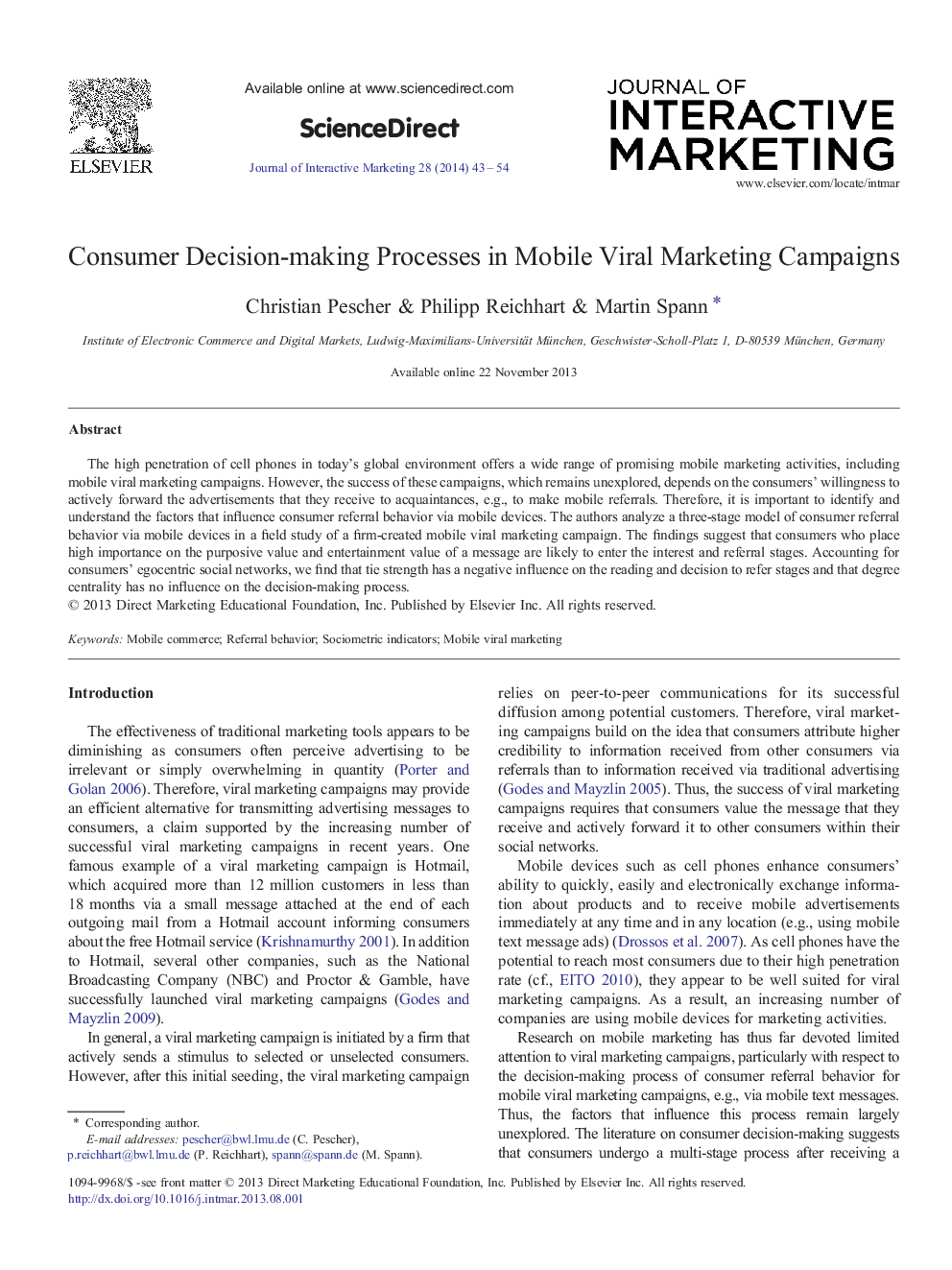| Article ID | Journal | Published Year | Pages | File Type |
|---|---|---|---|---|
| 886002 | Journal of Interactive Marketing | 2014 | 12 Pages |
•Field study of a firm-created mobile viral marketing campaign via text messages.•Analysis of consumers’ decision making process via a three-stage model.•Analysis of psychographic and sociometric consumer characteristics.•Sociometric characteristics play a substantial role in determining referral behavior.•Tie strength negatively impacts referral behavior but degree centrality does not.
The high penetration of cell phones in today's global environment offers a wide range of promising mobile marketing activities, including mobile viral marketing campaigns. However, the success of these campaigns, which remains unexplored, depends on the consumers' willingness to actively forward the advertisements that they receive to acquaintances, e.g., to make mobile referrals. Therefore, it is important to identify and understand the factors that influence consumer referral behavior via mobile devices. The authors analyze a three-stage model of consumer referral behavior via mobile devices in a field study of a firm-created mobile viral marketing campaign. The findings suggest that consumers who place high importance on the purposive value and entertainment value of a message are likely to enter the interest and referral stages. Accounting for consumers' egocentric social networks, we find that tie strength has a negative influence on the reading and decision to refer stages and that degree centrality has no influence on the decision-making process.
